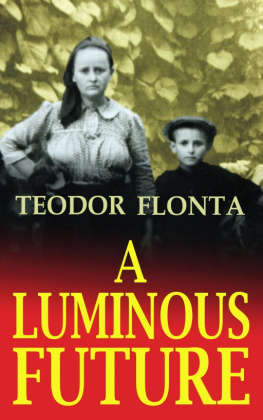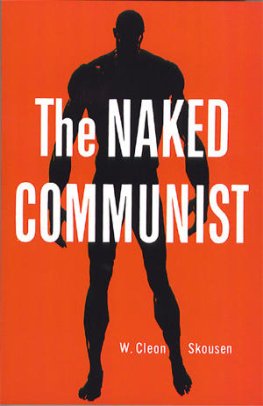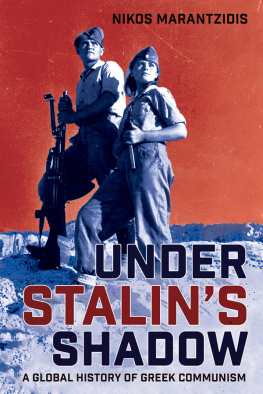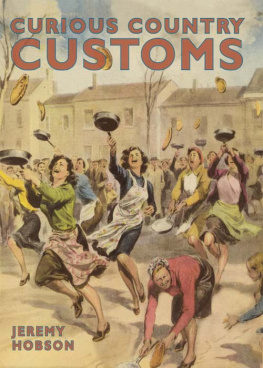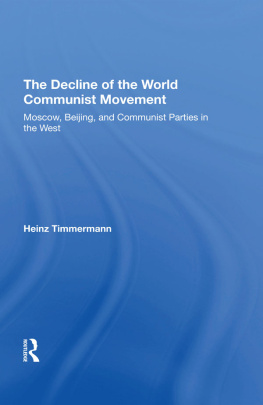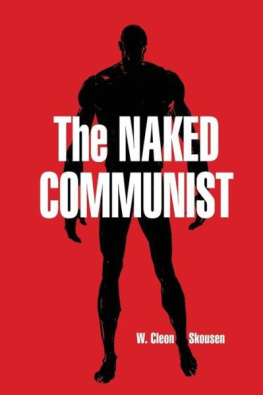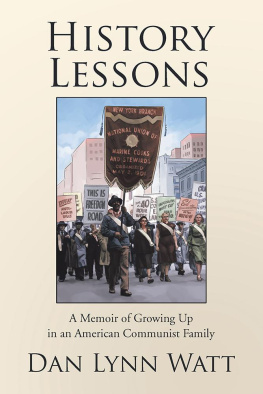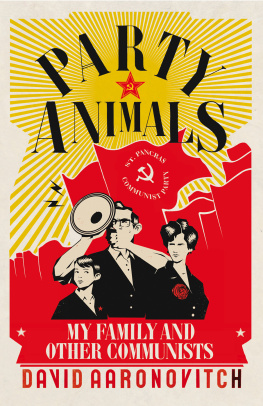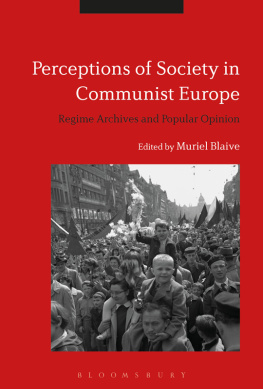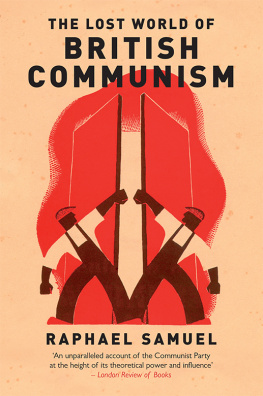A Luminous Future
Growing up inTransylvania in the Shadow of Communism
TeodorFlonta
Copyright Teodor Flonta2012
Smashwords Edition
Allrights reserved. No part of this publication may be reproduced,copied, scanned, stored in a retrieval system, recorded ortransmitted, in any form or by any means, without the prior writtenpermission of the author and publisher.
Paperback ISBN 978-1-4701-2235-5
Coverphotograph: Grandma Saveta in our courtyard, 1971
Coverdesign by Jan Seiler
Note:For privacy reasons, all the characters names have been changed,with the exception of those of the author, his parents and hisgrandparents. The new names are either made up or are commonly usedin the area and are not meant to reflect in any way on the peoplebearing them.
ForMatteo.
Withyour birth you gave me the voice to begin, with your firststeps the will to continue, and with your first words the strengthto finish this story.
Reviews for
A LuminousFuture
A LuminousFuture offersa unique insight into one of the most disturbing periods of modernEuropean history. By turns amusing, terrifying and confronting, thestory of Teodor Flonta, his father, his family and his community,is both a valuable social document and an intriguingread.
ChrisMcLeod, Manof Water , Fremantle Arts CentrePress
Theauthor does a wonderful job combining the historical and thepersonal. The images and themes surrounding the wolves bothanimal and human are brilliant. One of the greatest things aboutthis memoir is how the author balances the darkness and crueltywith pitch perfect humor. It is such a triumphant story in the faceof seemingly insurmountable odds and I think readers will love thisfamily and the spirit they show. It's funny and warm andheartbreaking as life so often is.
Jayne Pupek, The Tomato Girl , Algonquin
'Thisis a charming and sometimes shocking portrait of growing up in aremote village in Romania during the Communist era. It is anintriguing portrayal of the customs and traditions that lingered onfrom the pre-Communist days, humorous and brutal as they were, andtheir destruction at the hands of what seems a madness that grippedthe country during the 1940s and 50s. It is also a testament to theresilience of the authors father who endured unimaginablepressures, humiliations and imprisonments for committing no crimeother than employing a couple of men. Personally I find the storyquite gripping, and clearly and vividly told, with a mass ofilluminating detail. The characters come to life well, the authormakes a good guide to this to us strange world, and conveys thepolitics in a lively but understated way.
HelenaDrysdale, Looking for George ,Picador
Contents
The Duba
The End of theWorld
Stork and Cabbage
My Father Had aDream
The Three Fates andthe Evil Eye
The Valley of theWolves and a Parade of Invaders
A Luminous Future
A Pumpkin Trap and aSledge
Those Who Are Not withUs Are Against Us
Chiabur or the Enemy of thePeople
The Basement
Illiteracy Eradicationand a Musical Bucket
Quotas and Tears
Comrade Teacher
Fusus Death andAnother Arrest
Class Struggle, NewMen or Dead Men
The School Play
Hailstones, the Bible,Coloured Eggs and Cane Strokes
Sovrom and Uranium
Grandma s Bocet , Pioneers
The Danube-Black SeaCanal
Domnicas Poo and theChristmas Tree
Stalin Is Dead
Rodna Rodoet
NoPrize for the Chiabur s Son
Mischief on thePasture Fields
A Young PartySecretary Makes My Father Sing Sad Songs
Stakhanovists andSilkworms
Learning Russian andFighting the Imperialists with Wooden Guns
Turkeys, Fire and aFuneral
MultilaterallyDeveloped
Bricks for a New Houseand a Happy Farewell
A Revolution andAmerica
The New Principal andHis Wife
Zero in Maths
Loveless Child
A Transistor, a LovelyLanguage
Who Is Going to LookAfter Our Oxen Now
Little Soldiers
Unanimous Decision,the Egghead
Sinusitis and the Fishwith a Missing Tail
An Olympiad, Showersand Girls
Mares, Party Activistsand Free Will
On a Mission with aWhite Envelope
Destroy Your OnlySons Future
Stalins Sosia,Witches, and the Crossing of Seven Rivers
Ulcer and Bromide
The Party Paper andTeachers
Cherries and Lice
Collective FarmForever
A Farewell
Is There a Future OutThere
The Ball
Unhealthy SocialOrigin
Teacher with Picu
Irene, My HungarianFlame
Tatar Language
The Dean
Italian, Amore Mio
Postscriptum
Acknowledgments
Family Album
The Duba
Lupoaia, Transylvania.February 13, 1951.
Sometime aftermidnight, a black, windowless van, with its lights extinguished,stopped in front of our house. Four men hurried out. Two of thementered the courtyard and headed straight for the door, while theother two jumped over the fence; one stationed himself beside theback window of our bedroom, on the garden side, and the other atthe front window, overlooking the road. When they were all inposition, the first man tried the door handle. He turned to thesecond man, shook his head and peered through the window. Too darkto see inside, he shook his head again. The second man took a stepforward and knocked on the door three times.
Flonta Pavel, open up, he commanded.
They waited for half aminute. The man knocked louder.
Flonta Pavel, we know you are in there.
I was asleep in thesame room as my young parents. The loud knocks on the door woke meup and, as if having a bad dream, I started crying. Mama rushedover and took me in her arms. In the dark I saw the shadow of myfather grabbing clothes, opening the window and closing itagain.
Theyre everywhere, he whispered.
Godhelp us, Mama crossed herself.
Openimmediately, otherwise well break down the door. We know you arein there, Flonta Pavel. We want to talk to you.
Myfather nodded to Mama. She put me on the bed and went to open thedoor. Terrified at being left alone, I started crying again. Myfather took me in his arms and tried to calm me down. For a momentI felt safer against his rough work-worn, familiar skin, whichsmelled of straw, cow dung and plinca , the potent plum brandy he distilled. Mama, barefoot anddishevelled in her thick hemp shirt and petticoat, opened the doorand two plain clothes men burst into the house. The first took holdof her arm and dragged her into the room, while the second pushedher from behind. Mama started crying, which made me scream all themore. Then the first Securitate man yelled so loudly that I frozeand stopped crying. The darkness made him look huge.
Getsome light, woman, and mind the boy, he ordered. Then he turned tomy father and, in a calmer voice, said: You are coming withus.
Just like that. Youare coming with us was a new phrase repeated thousands andthousands of times all over the country, mainly in the dead ofnight. It was synonymous with torture, pain, and even death. Afterhearing those words, some the newly-created enemies of the people never came back.
Mama lit the lamp andtook me in her arms. The first Securitate man had big hands and bigteeth, whiter than sugar cubes. He leered menacingly at Mama witheyes black as charcoal in the low light of the small crowdedroom.
Why? my father asked.
You are a chiabur , the man said curtly.
Chiabur meant rich peasant or, in the new language of the regime,enemy of the people. A few months earlier, my father had beendeclared a chiabur because he had a cazan , a small distillery, where heemployed two people for two or three months a year. He knew that toargue with these men would only aggravate his situation. Since theprevious spring, rumours had circulated in the villages aroundLupoaia that the Securitate dragged people from their beds at nightand took them to town in the dreaded duba ,the black windowless van. Now those rumours had become reality andhe could do nothing to save himself.
Next page
